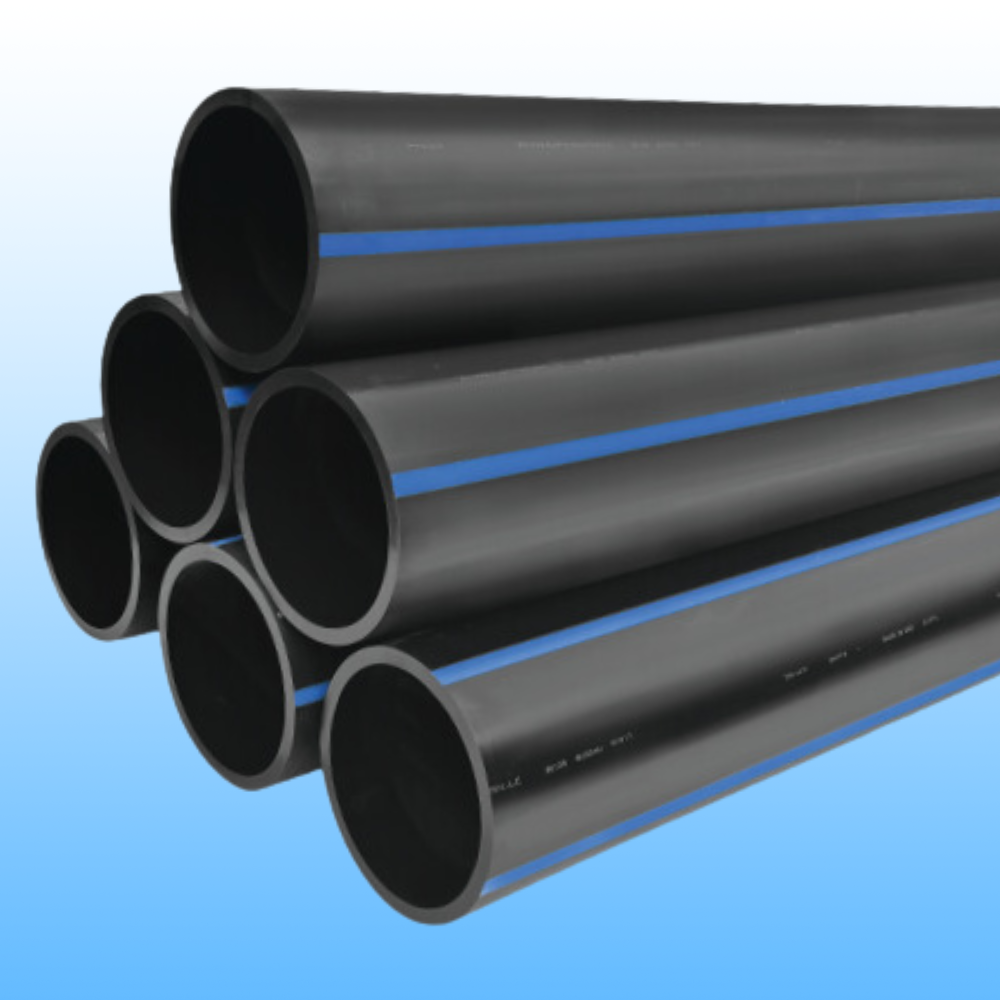The Advancement of American Plastics HDPE Pipe Manufacturing: What You Need to Know
Wiki Article
Comprehending the Trick Conveniences of HDPE Pipeline for Water and Wastewater Administration
Using HDPE pipe in water and wastewater administration presents numerous benefits that warrant factor to consider. Its phenomenal resilience and lengthy life expectancy make it a favored selection for lots of tasks. In addition, the product's resistance to corrosion and chemical damages enhances its integrity in various atmospheres. Nonetheless, the advantages expand beyond simply long life and resistance. Discovering its cost-effectiveness and environmental effect reveals also more engaging factors for its prevalent fostering in contemporary facilitiesPhenomenal Durability and Long Life

HDPE pipe stands apart for its extraordinary durability and longevity, making it a preferred choice in water monitoring systems. Built from high-density polyethylene, these pipelines can hold up against significant pressure and tension, guaranteeing reputable performance gradually. Their durable nature permits them to withstand severe environmental problems, consisting of temperature level variations and dirt movements, which can create other products to stop working.
The lifespan of HDPE pipes typically exceeds 50 years, providing an economical service for municipalities and industries alike. In addition, the material's light-weight residential or commercial properties simplify installment, decreasing labor prices and durations. This sturdiness decreases the need for frequent repair services or replacements, additionally enhancing its financial allure.
In water administration applications, the integrity of HDPE pipelines implies fewer disturbances and boosted solution connection, making them essential to lasting framework development. The combination of sturdiness and long life strengthens HDPE's duty as a cornerstone in reliable water administration solutions.

Resistance to Corrosion and Chemical Damages
While numerous materials succumb to corrosion and chemical damages in time, HDPE pipes show amazing resistance, making them optimal for various water management applications. This resilience comes from the molecular framework of high-density polyethylene, which is inherently non-reactive and does not corrode like steels or weaken from exposure to harsh chemicals. Therefore, HDPE is highly effective in settings with hostile substances, such as wastewater systems that might have acids, bases, and natural solvents.
In addition, HDPE pipes can hold up against environmental variables such as dirt acidity and saline conditions, even more enhancing their suitability for varied applications (Pipe Supplier American Plastics Midland). Their ability to maintain architectural honesty gradually minimizes the threat of leakages and failings, which is essential in ensuring the safety and security and reliability of water distribution and wastewater administration systems. Consequently, the resistance to corrosion and chemical damages significantly contributes to the general efficiency and long life of HDPE piping solutions
Cost-Effectiveness and Economic Benefits
When considering the financial implications of water management systems, the cost-effectiveness of HDPE pipes comes to be obvious. These pipelines offer lower installment and maintenance prices contrasted to standard materials like steel or concrete. Their lightweight nature streamlines transportation and installment, causing reduced labor costs. Furthermore, HDPE pipelines exhibit a long life-span, commonly surpassing half a century, which translates to fewer replacements and lasting cost savings.Moreover, the resistance of HDPE to corrosion and chemical damage lessens the requirement for expensive repair work and replacements. The pipelines likewise sustain effective water flow, lowering power expenses linked with pumping systems. By alleviating leakages and water loss, HDPE pipelines contribute to considerable financial advantages for communities and industries alike. Generally, the initial investment in HDPE piping can yield considerable economic returns over the lifespan of the water monitoring system, making it a prudent selection for lasting framework advancement.
Ecological Sustainability and Decreased Impact

Versatility and Flexibility in Installation
Because of their one-of-a-kind residential or commercial properties, HDPE pipes use amazing convenience and adaptability in installation, making them appropriate for a broad array of applications. Their light-weight nature enables much easier handling and transportation, minimizing labor expenses and installation time. HDPE pipes can be bent and shaped to fit numerous terrains and task demands, which is especially valuable in testing settings.Furthermore, their resistance to corrosion and chemical damage permits for installation in varied setups without the requirement for specialized protective coverings. The ability to fuse joints creates a constant, leak-free system, improving the general stability and integrity of the installation. HDPE's versatility likewise fits ground motion, reducing the risk of damages in locations susceptible to changing dirt. In general, these attributes make HDPE pipes not only versatile but also a preferred choice for water and wastewater management systems.
Regularly Asked Questions
Just How Does HDPE Pipeline Contrast to PVC in Water Monitoring Applications?
HDPE pipe provides exceptional versatility, resistance to rust, and resilience contrasted to PVC. Its lighter weight facilitates easier installation, while its long life expectancy lowers substitute costs, making HDPE a favored option in water management applications.What Is the Life Expectancy of HDPE Pipes Under Common Conditions?
Under regular problems, HDPE pipelines can have a lifespan ranging from 50 to 100 years. Their toughness and resistance to rust contribute to their lasting performance in different applications, making them a trustworthy option for facilities.Are HDPE Pipes Recyclable After Their Life Span?
Yes, HDPE pipes are recyclable after their life span. Pipe Supplier American Plastics Midland. They can be refined and repurposed into brand-new products, considerably minimizing environmental impact and promoting sustainability within the market, making them an eco-friendly option for piping remediesWhat Is the Setup Process for HDPE Piping?
The installation process for HDPE pipelines includes website prep work, trenching, pipe combination or mechanical joining, backfilling, and pressure screening. Correct methods assure a long lasting and efficient system for transferring water and wastewater efficiently.Can HDPE Pipeline Be Used for Both Safe And Clean and Non-Potable Water Solutions?
Yes, HDPE pipelines can be made use recommended you read of for both drinkable and non-potable water supply. Their versatility, longevity, and resistance to rust make them suitable for various applications, guaranteeing secure and effective transport of water in various contexts.Report this wiki page